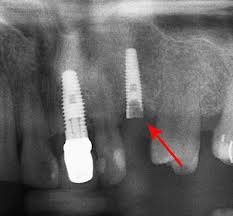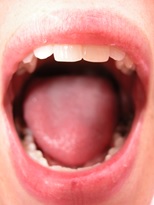 Sometimes when we are snacking, we want something that has some “crunch” in it. Certainly, many foods fit the bill.
Sometimes when we are snacking, we want something that has some “crunch” in it. Certainly, many foods fit the bill.
But not all crunchy foods are created equal. Some crunchy foods are good for your teeth and some….well, not so great.
When you consider crunchy foods, choose ones that take a long time to eat, requiring a lot of chewing. Chewing is actually great for your teeth, because chewing encourages the production of saliva. Saliva, that magical spit, bathes your teeth and gums with moisture and removes bacteria and debris from your teeth and the spaces between them.
Good crunches:
Pears and apples: Both of these fruits do have sugar, but their water content more than makes up for the sugar content. This is an ideal ratio; the water “washes” away the sugar in your mouth.
Raw celery, carrots and broccoli: Of these, celery is actually the best choice. It has the least amount of calories and its fibers actually act like a natural dental floss.
Nuts with no added flavors or sugar: A handful of almonds or cashews provides protein and vitamins. They are not without calories, but their crunch is the right kind of crunch.
Bad crunches:
Chips and crackers: These high calorie starches really provide very little crunch (think about how the items “melt” in your mouth). Anything that is mostly carbohydrate turns into a “sugar” in your mouth, and contributes to bacterial build-up.
Popcorn: Popcorn can be low-fat, but what cannot be taken out of popcorn is the “sticky” quality of the kernels, pieces of which often get stuck under the gums and between teeth. Popcorn contributes to far more than its fair sure of dental issues. You’ve been warned.
Peanut brittle: This is the granddaddy of bad crunches. Essentially, you are chewing sticky, hardened sugar. Go directly to the tooth brushing station. Do not pass “Go”!
Healthy snacking can be a part of a balanced diet and part of an enjoyable lifestyle. Consider not just your waistline but your gum line as you choose what to crunch.








